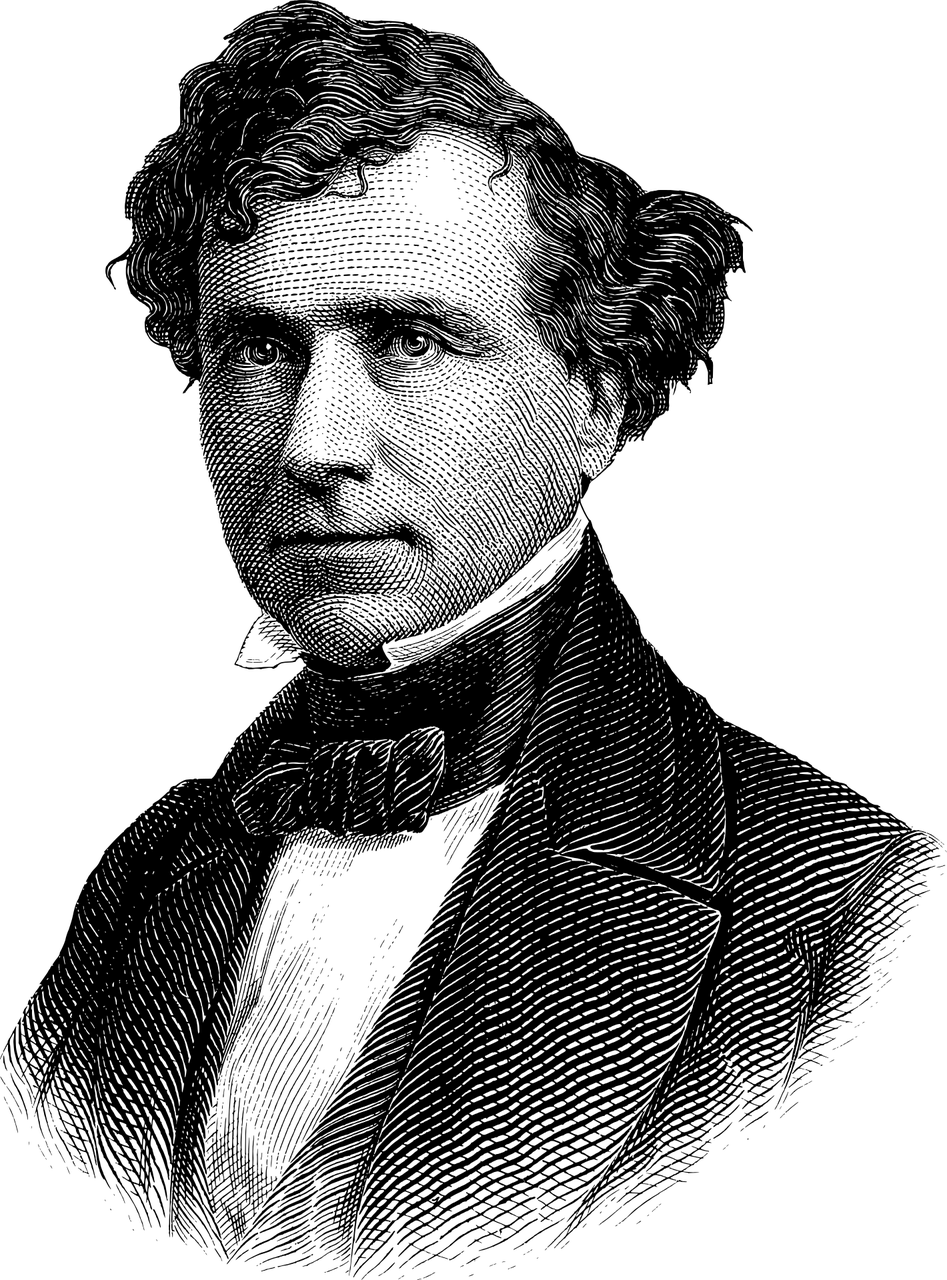Born on November 23, 1804, Franklin Pierce was born to Anna Kendrick Pierce and Benjamin Pierce in Hillsborough, New Hampshire. His father was one of the first settlers in the town and involved in local politics and was considered a hero during the American Revolution.
Their neighbors were delighted with Franklin Pierce. Described as a beautiful boy with blue eyes and curling hair, he sure won many because of his sweet, expressive face.
When Franklin Pierce was around eight years old, his father sent two of his brothers into the army during 1812, while his sister, Nancy, married Major Solomon McNeil.
His parents understand the disadvantages of a defective education that is why they prioritized their children’s education. Until about twelve years old, Franklin Pierce attended various public schools. Later on, he was sent to a private academy. When he was fifteen years old, he attended Bowdoin College at Brunswick, Maine. He was a party animal, so it greatly affected his scores and landed last in his class. Eventually, he grew matured and took his studies seriously. Franklin Pierce was friends with a famous author, Nathaniel Hawthorne. Their friendship deepened over the years, and Nathaniel Hawthorne even wrote his biography. Franklin Pierce rose progressively and also took a highly credible degree. His calling for leadership started to unfold as he became the standing committee of the Athenian Society. His concentration and focus on his studies helped him develop his public speaking skills. In 1824, he graduated fifth in his class.
Because of his public speaking skills, Franklin Pierce was elected as a state legislator while still in Bowdoin. It was endorsed by his father, Benjamin Pierce, who won as the governor. Because of his charm and political influences, he was chosen as the House Speaker in 1831. Franklin Pierce and his father were both supporters of Andrew Jackson. Jacksonian Democrats start to become prominent. During the second term of Andrew Jackson, Franklin Pierce was elected to the United States House of Representatives under the Democratic Party during his late 20s.
As a young man in a big city, Washington is a nasty place for a young man because of its ill-smelling swamps and unpleasant environment, and he found comfort in alcohol to ease his boredom. His drinking issues caused him many problems.
Despite their big difference, Franklin Pierce married Jane Means Appleton in 1834. She was the daughter of Jesse Appleton, a former president of his alma mater, Bowdoin College. Jane’s family is a staunch Whigs, who oppose Andrew Jackson, and Franklin Pierce revered it. She is also a massive supporter of the temperance movement. It is a group that was against the consumption of alcoholic beverages.
Jane was a pious, shy, and reserved. She loathed Washington and refused to live there even when Franklin Pierce was elected as a U.S. Senator in 1837. The couple had three sons, with only one surviving child.
During his Senate service, there is no significant bill he authored, and Jacksonian positions inspire his political disposition. It uses hard money, opposing the United States Bank, and the need for internal improvement; however, he has a personal conviction, which is the opposition to the abolitionist movement. The majority of Franklin Pierce’s close political friends were southerners, and he was influenced to sympathize with their proslavery opinions.
In 1841, he resigned from the Senate after her wife consistently persuade him to move back to New Hampshire. He opened his law firm and even stopped drinking and became part of the temperance movement. Franklin Pierce also led a drive that outlaws the consumption of liquor in their new hometown. In his law practice, he held high-profile cases, which made him popular among New Hampshire citizens. Despite his private practice, he continued his involvement with politics and even managed to secure Democrat James K. Polk his seat in the White House.
Notwithstanding his lack of military experience, he took the American-Mexican War as an opportunity. He was a private and aided the recruitment of New Hampshire Volunteers. Franklin Pierce was able to appeal to President James Polk for a commission through his connections.
In 1847, Franklin Pierce was a brigadier general; he sailed in Veracruz’s shores and commanded his two thousand men despite his lack of military experience. As the war is concluding, his army won two battles against the Mexican forces; however, he injured his leg in the Battle of Contreras on August 19 after his horse stumbled and threw him off.
After the war, the 1852 election ensues on the issues of slavery in the territories which divided the nation. Major political parties, Democrats and Whigs, found it difficult to appease the sectional divide. The Democrats took the opportunity to nominate Franklin Pierce as an ideal presidential nominee against Whig’s Winfield Scott because they believed that he could appeal to Northerner and Southerner. Soon, he was elected as the 14th president of the United States.
Franklin Pierce’s victory was soon marred by tragedy after he and his wife, Jane, witnessed their only surviving son’s death, Benjamin, in a railroad accident. Jane has always opposed his presidency and was inconsolable after the misfortune.
Franklin Pierce was the youngest man to be elected as the president at the age of 47. He had shortcomings at the beginning of his presidency and wished to straighten up his act; however, it was too late because the Democrats declined his plan to run for another term in the White House. He signed the Kansas-Nebraska Act, negotiated the Gadsden Purchase, and even authorized the Ostend Manifesto, which threatened Spain to sell Cuba.
After his presidency, he retired in his New Hampshire home. After the Civil War, he turned to alcohol again. He died on October 8, 1869, due to liver cirrhosis due to his heavy drinking.
US Presidents | ||
